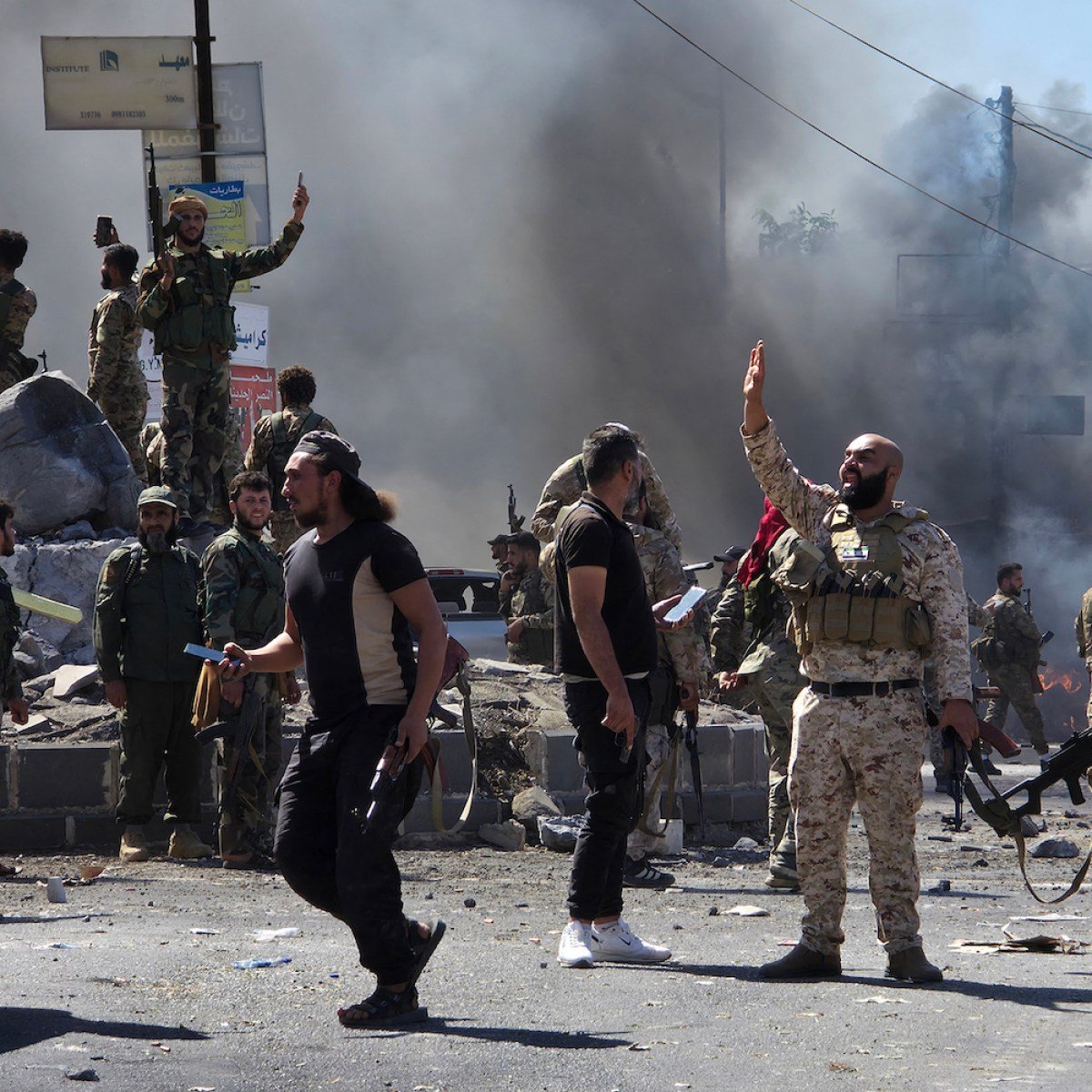Facebook Twitter (X) Instagram Somali Magazine - People's Magazine
Tensions have sharply escalated in Syria after Israeli airstrikes targeted the headquarters of the Syrian military and areas near the presidential palace in Damascus. The strikes follow intense clashes between Syrian government forces and Druze fighters in Suwayda, a southern city home to the country’s largest Druze population.
Israeli Defence Minister Yoav Gallant confirmed that the military had attacked the entrance to the Syrian Ministry of Defence, saying the move was in response to ongoing violence against the Druze community. Israel views the Druze as potential allies and has warned Syria to withdraw its forces from Suwayda or face further attacks.
Al Jazeera’s reporter in Damascus witnessed two drone strikes on the ministry’s building and reported ongoing gunfire from Syrian forces attempting to shoot down the drones. “This shows how serious the situation has become — Israeli strikes are now hitting the heart of Damascus,” he said.
Experts suggest these strikes are part of a “performative escalation” — initially aiming to send a warning rather than cause major destruction. However, analysts warn that more direct and dangerous attacks could follow.
Clashes in Suwayda reignited shortly after the Syrian government announced a ceasefire, which quickly broke down. According to medical and military sources, over 200 people have been injured and as many as 250 killed, including children and soldiers. The UK-based Syrian Observatory for Human Rights also reported field executions.

As violence spreads, Israel’s border with Syria has become a flashpoint. Israeli Druze, concerned about their relatives across the border, gathered in large numbers — some even crossing into Syria to support the Druze fighters. Prime Minister Benjamin Netanyahu urged them to return, warning they could be putting themselves in danger and disrupting military operations.
The Israeli military has continued airstrikes in and around Suwayda, targeting tanks, rocket launchers, and vehicles heading toward the city. Minister Gallant said these strikes are meant to enforce Israel’s policy of keeping hostile forces away from the border and protecting the Druze community.
The Syrian government, along with several Arab nations, has condemned the strikes as a breach of international law. Syria also criticized Israel for what it sees as interference in its internal affairs.
Tensions in Suwayda originally flared after a series of kidnappings and attacks between Druze groups and local Sunni Bedouin tribes. One incident — the kidnapping of a Druze merchant — is believed to have sparked the recent violence. Videos of killings and abuses shared on social media added fuel to the fire, inflaming sectarian tensions.
Syria’s Druze population numbers around 700,000. During the country’s 14-year civil war, many Druze formed militias for self-protection. Since President Bashar al-Assad was overthrown, Druze factions have been divided over whether to support or oppose the new government led by Ahmed al-Sharaa.
Political analysts say the failure of the new Syrian government to include minorities in leadership roles is partly to blame for the unrest. The lack of a power-sharing structure has left communities like the Druze feeling excluded and unsafe.
According to reports, Israel has been coordinating with a leading Druze religious leader, Sheikh Hikmat al-Hijri. His forces recently took over government buildings in Suwayda, prompting Syrian troops to respond and Israel to intervene militarily.
Analysts argue that instead of seeking peaceful relations with Syria’s new leadership, Israel has chosen to maintain its military pressure and regional dominance. Many now fear the crisis could deepen if both sides continue down this path of confrontation.

